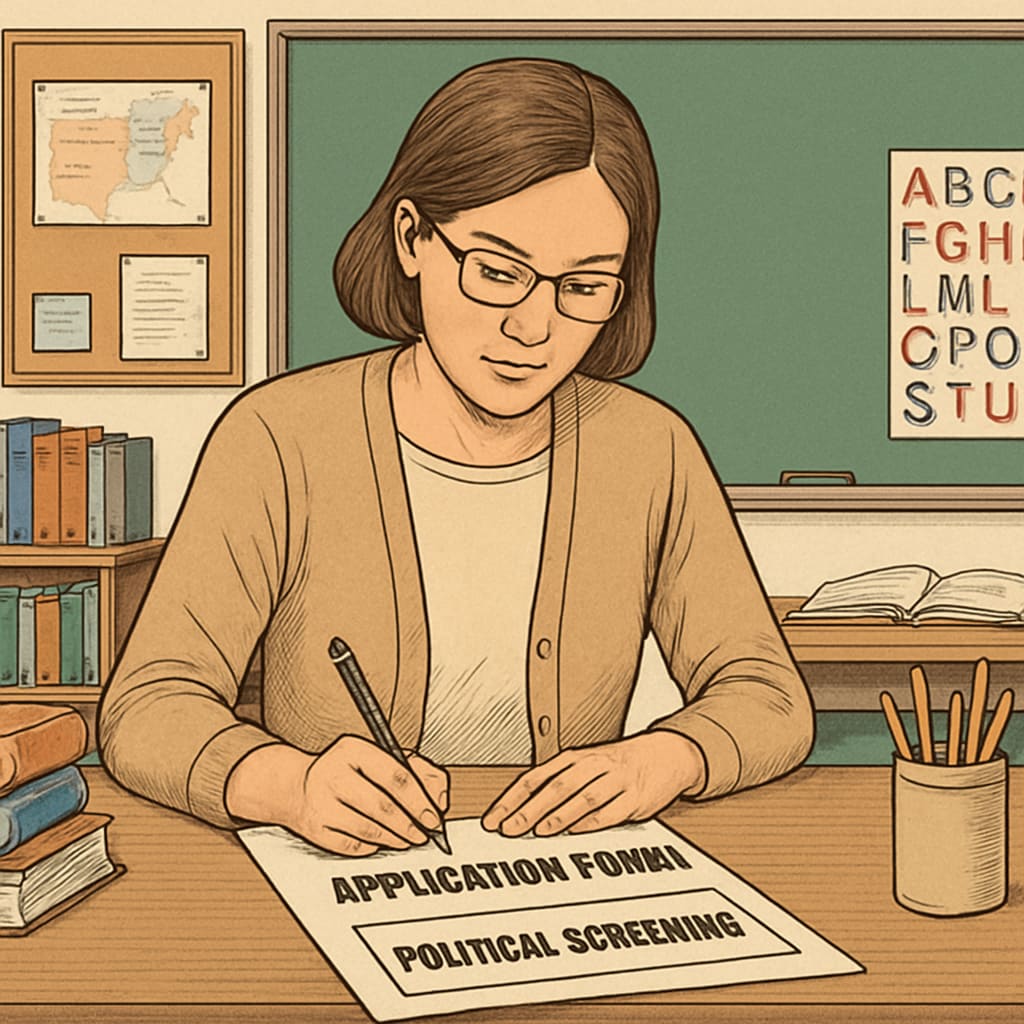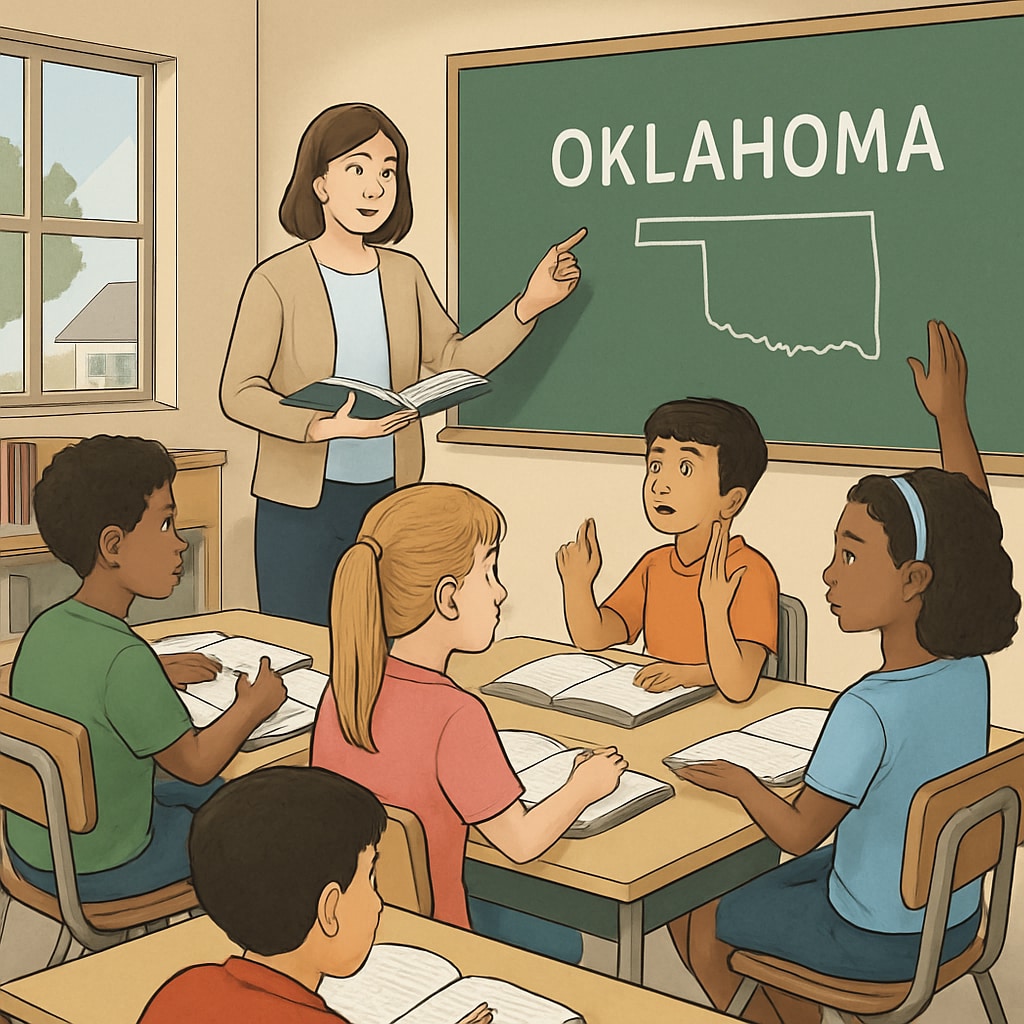Oklahoma has recently implemented a controversial policy requiring out-of-state teacher applicants, particularly those from New York and California, to undergo political ideology screening. This “political litmus test” involves answering a series of 50 questions aimed at assessing the applicant’s political leanings. The move has sparked widespread debate about the intersection of education and politics, raising alarming concerns about the potential erosion of professional neutrality in K12 education.

Why Politicize Teacher Applications?
At its core, the policy appears to stem from Oklahoma’s broader political climate, where ideological alignment is increasingly emphasized. Supporters of the measure argue that it ensures educators align with the “values” of the state and its communities. Critics, however, view this as an attempt to weaponize education by filtering out individuals whose beliefs may diverge from the dominant political narrative.
There are significant risks involved in such politicization:
- Loss of educational neutrality: Education should be a space for fostering critical thinking and diverse perspectives, not enforcing ideological conformity.
- Barriers to qualified talent: Teachers from other states may be discouraged from applying, exacerbating existing teacher shortages.
- Legal and ethical concerns: Screening applicants based on political beliefs could lead to lawsuits and further polarization.
Potential Impact on K12 Education
The ripple effects of this policy are likely to be felt throughout Oklahoma’s K12 education system. First and foremost, it risks alienating experienced educators who might otherwise bring valuable perspectives and teaching expertise to the state. Additionally, it sends a troubling message to students about the role of politics in shaping their educational environment.

Research has shown that diverse teaching staff can positively impact student outcomes, fostering inclusivity and critical thinking. By narrowing the ideological spectrum of educators, Oklahoma may inadvertently limit the intellectual and cultural diversity available to its students (Diversity in Teaching on EdWeek).
Broader Implications for Education Policy
Oklahoma’s approach raises broader questions about the role of political ideology in education policies nationwide. Should states have the right to impose such screenings on educators? And where should the line be drawn between promoting “state values” and respecting individual freedoms?
As noted in the Britannica entry on Education, the fundamental goal of education is to prepare individuals to think critically and participate effectively in society. Policies that prioritize ideological conformity over academic excellence could jeopardize this mission.
In addition, this trend could set a precedent for other states to adopt similar measures, further politicizing the educational system across the country. Education experts warn that such developments could undermine public trust in schools and educators alike.
Conclusion: A Call for Thoughtful Debate
While Oklahoma’s political ideology screening policy may aim to align education with state values, its potential drawbacks are hard to ignore. From discouraging qualified talent to risking the neutral spirit of education, the policy represents a dangerous step toward politicizing a field that should remain focused on learning and growth.
As discussions around this issue continue, it is crucial for policymakers, educators, and communities to consider the long-term implications of intertwining politics with education. The classroom should be a sanctuary for intellectual exploration, not a battleground for ideological warfare.
Readability guidance: Structured with concise paragraphs, lists summarizing key points, and a focus on clear transitions between ideas. The article avoids excessive passive voice and overly complex sentence structures to maximize engagement.


